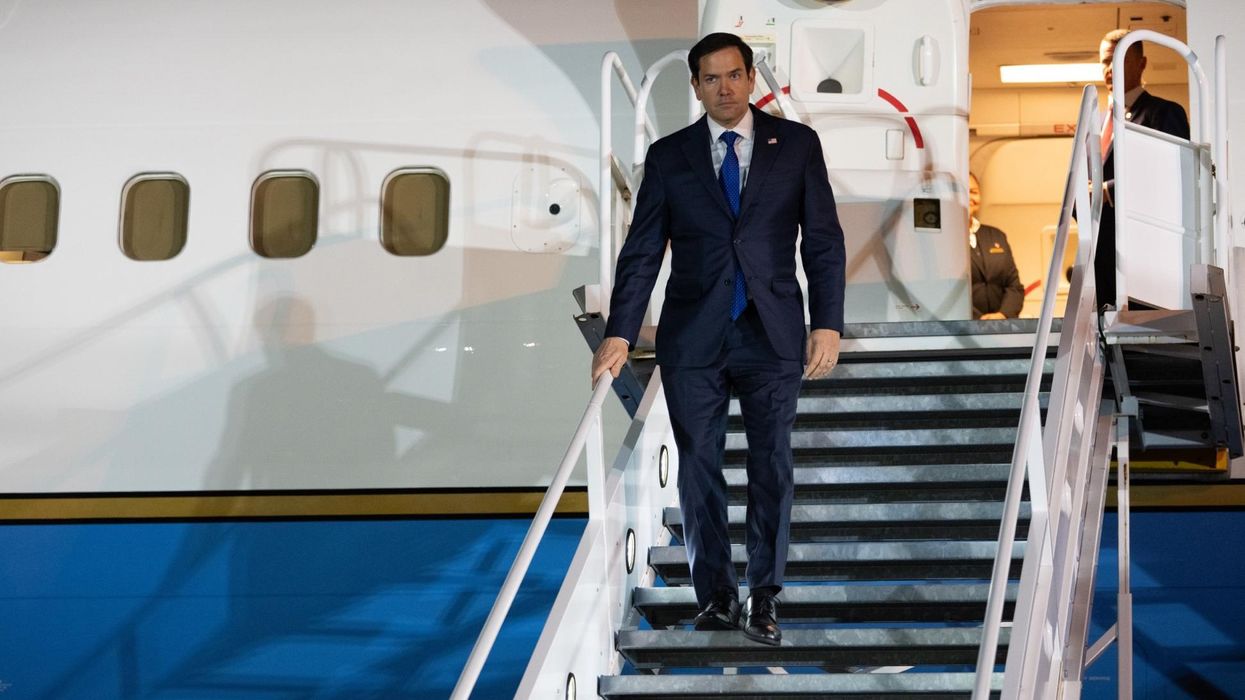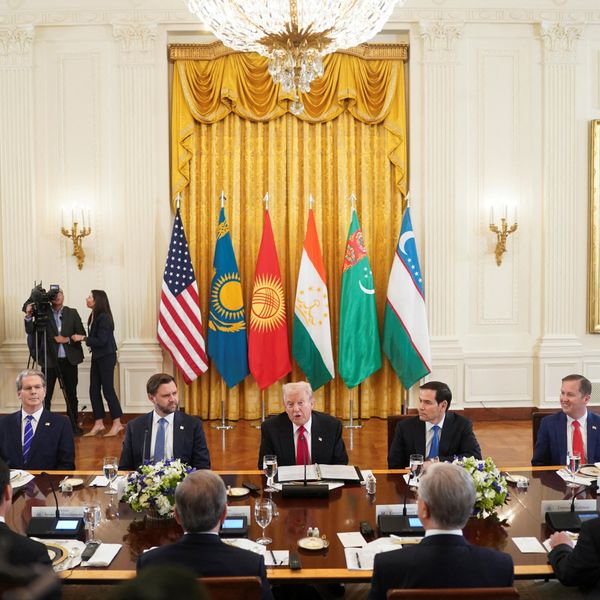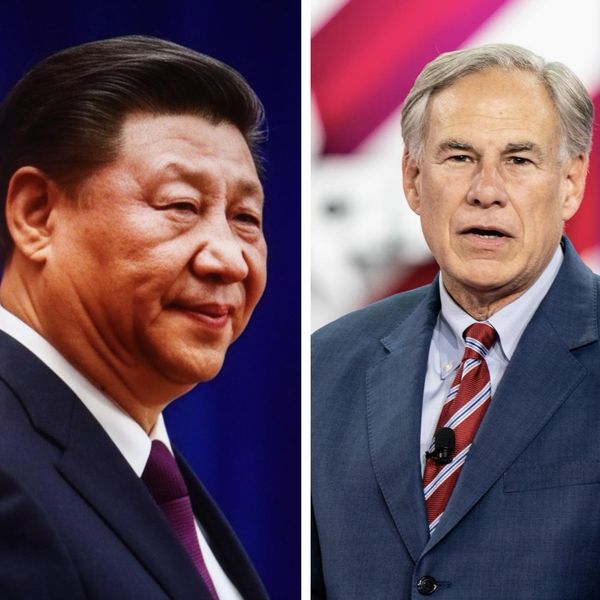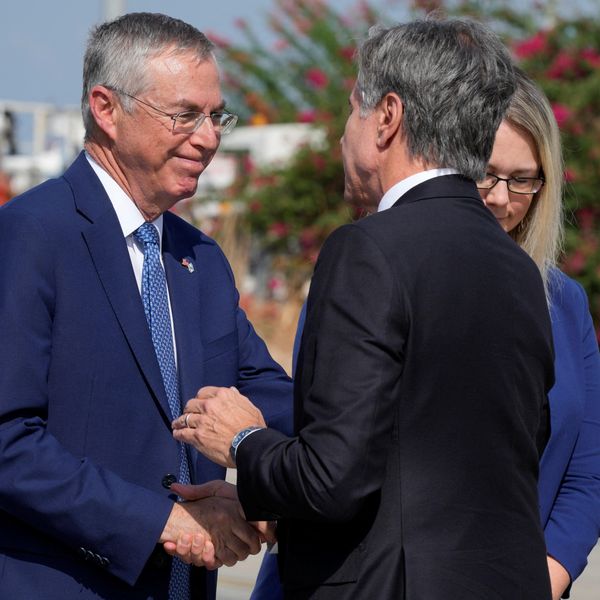Last month, Human Rights Watch released a report documenting massacres of migrants and asylum seekers by U.S.-trained Saudi border guards. Far from holding the Saudi government accountable, the Biden administration announced last week the first proposed arms sale to Saudi Arabia in over a year, and the sale includes repairs and spare parts for some of the very same equipment to carry out what Human Rights Watch describes as possible crimes against humanity.
The proposed sale comes just months after the Biden administration released its Conventional Arms Transfer policy — which, on paper, elevates human rights concerns in the administration’s arms transfer policy. The sale demonstrates the need for more congressional attention to the human consequences of U.S. arms sales.
Meanwhile, Congress is now poised to consider repealing the overly-vague authorizations underpinning the “war on terror” that expanded executive power over war-making after the Senate passed a repeal of the 2002 Iraq war authorization in March.
However, despite interest from both members of Congress and the public, further legislative action to address long standing gaps in foreign policy accountability does not look promising this year.
Over the summer, the House and Senate passed their respective versions of the National Defense Authorization Act (NDAA), the defense policy bill that serves as an annual vehicle to pass many foreign policy laws. Largely absent from either chamber’s versions were measures to reassert congressional oversight for the use of military force and arms sales, two of the chief ways that the U.S. fuels armed conflict around the world. Although the House and Senate versions contain some reporting requirements on weapons and the use of military force, more ambitious reform proposals were left on the cutting room floor.
Among the nearly 8,000 bills introduced since the start of the 118th Congress, several would explicitly address congressional oversight of foreign policy. These bills were excluded from the FY2024 NDAA and are not likely to become law on their own — Congress only enacts about 2 percent of proposed stand-alone legislation.
However, these proposals provide an important foundation for ongoing conversations about the policy changes required to ensure effective oversight of U.S. defense and national security policy including through war powers reform, increased arms sales oversight, and improved human rights standards.
War Powers Reform
Following the September 11, 2001 terrorist attacks, Congress passed far-reaching authorizations for the use of military force that both Democratic and Republican administrations have used to conduct lethal force operations throughout the world, including in places where the U.S. is not a party to the conflict, where the adversaries did not exist at the time of the September 11 attacks, and even in the absence of an ongoing armed conflict.
In an effort to counteract this over-extended executive authority, the Reclamation of War Powers Act (HR. 3370), introduced by Rep. Jim Himes (D-Conn.), would limit funding for any new military engagement without explicit approval from Congress — essentially preventing the president from authorizing any more activity via the two-decades-old AUMFs.
It would also create additional reporting requirements for the president when utilizing emergency executive authority. Additionally, Sen. Dick Durbin’s (D-Ill.) Accountability for Endless Wars Act of 2023 (S.1151) would establish sunset provisions for both future and existing authorizations for the use of military force and declarations of war, requiring that any future authorizations terminate 10 years after enactment. The bill would repeal currently active authorizations after six months, forcing Congress to reauthorize the U.S. military’s active engagement in Somalia, Yemen, Syria, and elsewhere.
Flipping the Script on US Arms Transfers Oversight
The National Security Reforms and Accountability Act, or NSRAA, (HR. 4928) is a bipartisan bill recently reintroduced by Reps. Jim McGovern (D-Mass.) and Nancy Mace (R-S.C.) that seeks to reassert Congress’s national security powers in three key areas: war powers, arms exports, and national emergencies.
The portion of NSRAA addressing weapons exports would “flip the script” on how Congress approves U.S. arms transfers. Current law requires Congress to muster supermajorities in both chambers to block a president’s proposed arms sale in light of a near-inevitable veto. Given this high barrier, Congress has never been able to block presidents of either party from arming human rights abusers, even when the endless supply of weapons to foreign governments is unpopular in Congress and with the U.S. public.
The flip-the-script approach, first introduced by then-Senator Joe Biden in 1986, would require an affirmative congressional vote to approve a subset of the riskiest arms transfers. This process would require Congress to pass risky arms sales by voting for them, as it does other bills, rather than allowing concerning arms sales to proceed in the absence of a congressional vote of disapproval which, historically, has been impossible to achieve.
Human Rights and U.S. Security Assistance
In addition to an increasingly expansive global military presence, the United States is the world's largest arms dealer, responsible for selling roughly 40 percent of all weapons in the global market. Many of these weapons go on to fuel conflict, human rights violations, and civilian harm, and there are credible reports of the negative impact of the U.S. commercial arms trade in countries that import American-made weapons.
Despite the known risks, human rights and civilian harm issues are often not adequately considered in arms transfer decisions — the term “human rights” does not even appear in the Arms Export Control Act, the main statute governing U.S. arms exports. What’s more, current U.S. “end-use monitoring” processes don’t actually monitor the use of U.S.-origin weapons in human rights violations or civilian harm.
The Stop Arming Human Rights Abusers Act (HR.1471), introduced by Rep. Ilhan Omar (D-Minn.), would explicitly prohibit the United States from selling weapons to any foreign country found to be in violation of international human rights law or international humanitarian law, which would likely include several prominent buyers of U.S. weapons. The bill would establish a new federal commission to monitor and enforce this mandate.
The Safeguarding Human Rights in Arms Exports Act of 2023 (SAFEGUARD) was reintroduced this year in both the House and Senate. Introduced by top foreign policy Democrats in the House and Senate, the SAFEGUARD Act would make significant changes to the Foreign Assistance Act and Arms Export Control Act, including by clarifying that the human rights restrictions in the Leahy Law apply to all U.S. arms sales.
It would also increase notifications to Congress when arms sales are proposed to a country where gross human rights violations have occurred, ban arms exports to countries where the government has committed genocide or war crimes, and mandate that the U.S. government track whether U.S. weapons are used to violate human rights or international humanitarian law. Ironically, and notwithstanding the strength of the bill, the SAFEGUARD Act’s sponsor Sen. Menendez was recently indicted on corruption charges involving, in part, helping funnel weapons to Egypt, whose regime has an abysmal human rights record.
Although Rep. Meeks introduced SAFEGUARD as an amendment to the House NDAA in its entirety and Rep. Sara Jacobs (D-Calif.) introduced an amendment that drew from SAFEGUARD’s provisions on end-use monitoring of U.S. weapons for human rights violations, neither made it into the versions of the FY24 NDAA that are now being reconciled.
***
Deliberations on the NDAA will continue this fall, with a reconciled bill expected to reach President Biden’s desk by the end of the year. While the current NDAA drafts leave much to be desired, there are still opportunities to improve transparency and oversight of U.S. military engagement, security assistance, and arms transfers — no matter the recipient country or political party in control of Congress or the executive branch. Congress should take up and pass these bills, which are critical to protecting our constitutional balance of powers, providing accountability for U.S. taxpayer dollars, and maintaining U.S. legitimacy on the world stage.
- Bipartisan effort to claw back war powers from White House launched today ›
- Now that the US war in Afghanistan is over, it’s time to revisit war powers ›
- Pols loaded with industry cash vote up military budget - Responsible Statecraft ›
- Congress poised to cede more foreign weapons oversight. Why? | Responsible Statecraft ›
















